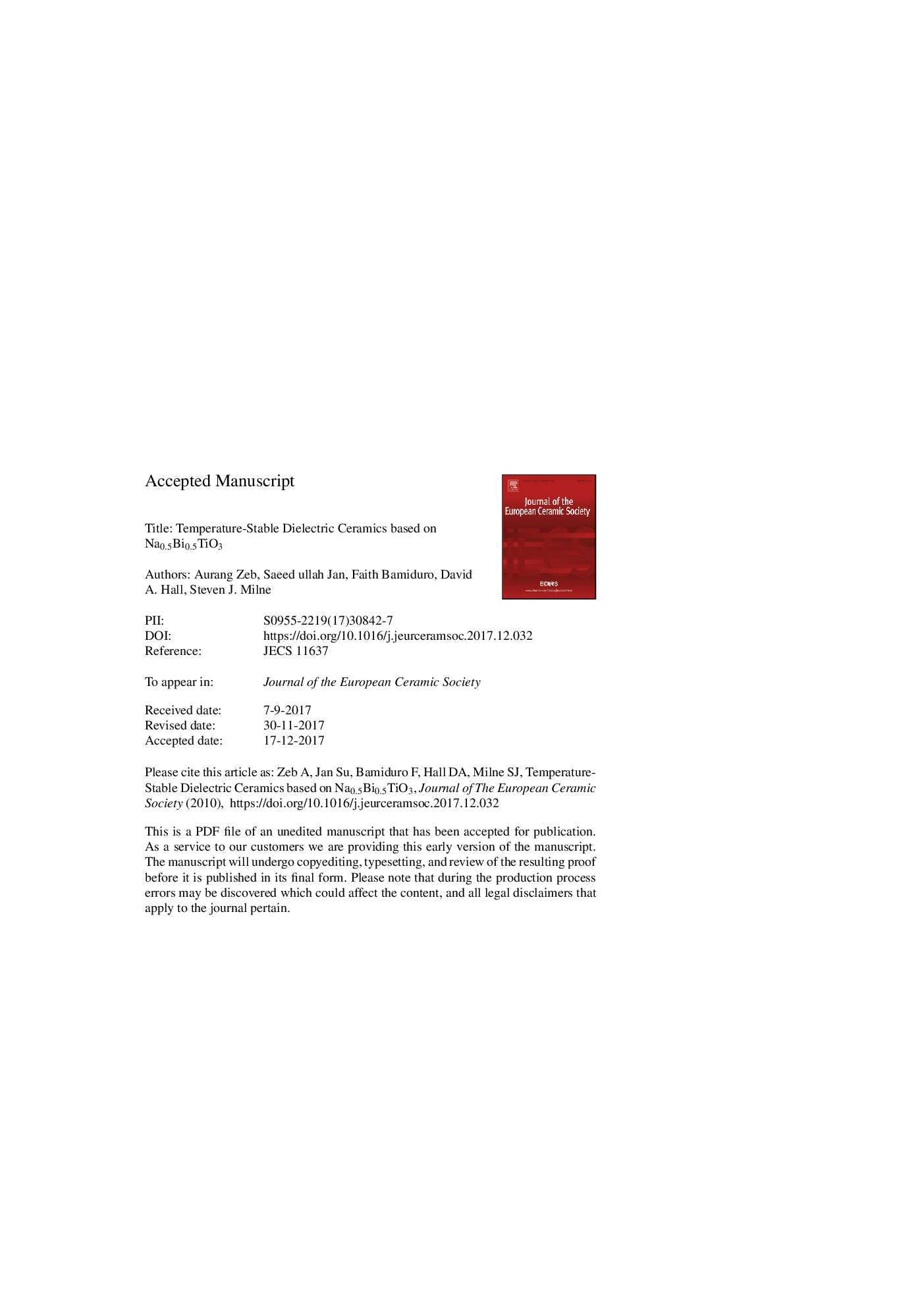| Article ID | Journal | Published Year | Pages | File Type |
|---|---|---|---|---|
| 7898729 | Journal of the European Ceramic Society | 2018 | 25 Pages |
Abstract
Multiple ion substitutions to Na0.5Bi0.5TiO3 give rise to favourable dielectric properties over the technologically important temperature range â55â¯Â°C to 300â¯Â°C. A relative permittivity, εr,â¯=â¯1300â¯Â±â¯15% was recorded, with low loss tangent, tanδâ¯â¤â¯0.025, for temperatures from 310â¯Â°C to 0â¯Â°C, tanδ increasing to 0.05 at â55â¯Â°C (1â¯kHz) in the targeted solid solution (1-x)[0.85Na0.5Bi0.5TiO3-0.15Ba0.8Ca0.2Ti1-yZryO3]-xNaNbO3: xâ¯=â¯0.3, yâ¯=â¯0.2. The εr-T plots for NaNbO3 contents xâ¯<â¯0.2 exhibited a frequency-dependent inflection below the temperature of a broad dielectric peak. Higher levels of niobate substitution resulted in a single peak with frequency dispersion, typical of a normal relaxor ferroelectric. Experimental trends in properties suggest that the dielectric inflection is the true relaxor dielectric peak and appears as an inflection due to overlap with an independent broad dielectric peak. Process-related cation and oxygen vacancies and their possible contributions to dielectric properties are discussed.
Keywords
Related Topics
Physical Sciences and Engineering
Materials Science
Ceramics and Composites
Authors
Aurang Zeb, Saeed ullah Jan, Faith Bamiduro, David A. Hall, Steven J. Milne,
